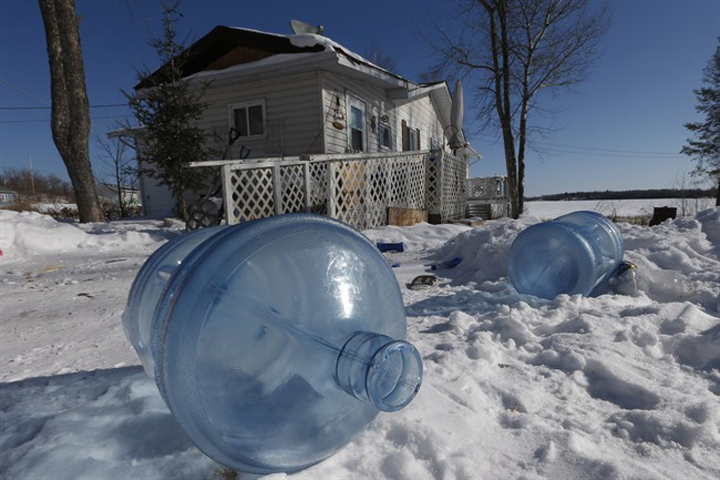SHOAL LAKE, Ont. – A reserve under one of the longest boil-water advisories in Canada has declared a state of emergency after the ferry connecting it to the outside world failed to pass inspection.

The Shoal Lake 40 First Nation was cut off from the mainland a century ago to build an aqueduct which supplies the city of Winnipeg with fresh water. The reserve, which straddles the Ontario-Manitoba border, has no all-weather road and has been under a boil-water advisory for 17 years.
READ MORE: The price of Winnipeg’s water: A First Nation’s misery
Chief Erwin Redsky says that without the ferry, people on the man-made island have no way to get groceries, bottled water or immediate medical attention, and normal life on the reserve is virtually impossible.
“We have elders at risk,” he said Thursday. “We’ve been cut off for 100 years and we’ve barely been hanging on by our fingernails. Loss of water delivery, health services and vehicle access threatens our very survival.
“This injustice needs to end.”
The reserve has been calling for the construction of an all-weather road — dubbed Freedom Road by residents — for years. The community estimates an all-weather road would cost about $30 million.
The federal government, Manitoba and the city of Winnipeg have chipped in $1 million each for a feasibility study, but there are no firm commitments beyond that.
READ MORE: Shoal Lake 40 First Nation by the numbers
- Roll Up To Win? Tim Hortons says $55K boat win email was ‘human error’
- Bird flu risk to humans an ‘enormous concern,’ WHO says. Here’s what to know
- Halifax homeless encampment hits double capacity, officials mull next step
- Ontario premier calls cost of gas ‘absolutely disgusting,’ raises price-gouging concerns
Reserve officials have said that every winter, people from Shoal Lake 40 fall through the ice trying to get into the community. In the summer, the ferry is their only lifeline.
The ferry failed to pass its four-year Transport Canada inspection due to a leaky and rusty hull, said Redsky, who added it’s not clear how much it will cost to get the ferry seaworthy again.
The reserve wants Ottawa to help pay for the repairs and for a shuttle service in the meantime that will restore the community’s connection to the mainland, he said.
But that’s only a temporary solution, Redsky said. Without an all-weather road, garbage and liquid waste is piling up on the reserve.
“We want a commitment to build Freedom Road. That’s the ultimate solution.”
Emily Hillstrom, spokeswoman for federal Aboriginal Affairs Minister Bernard Valcourt, said in an email that department officials are in touch with the reserve “to determine what their needs are and what assistance is required.”



Comments